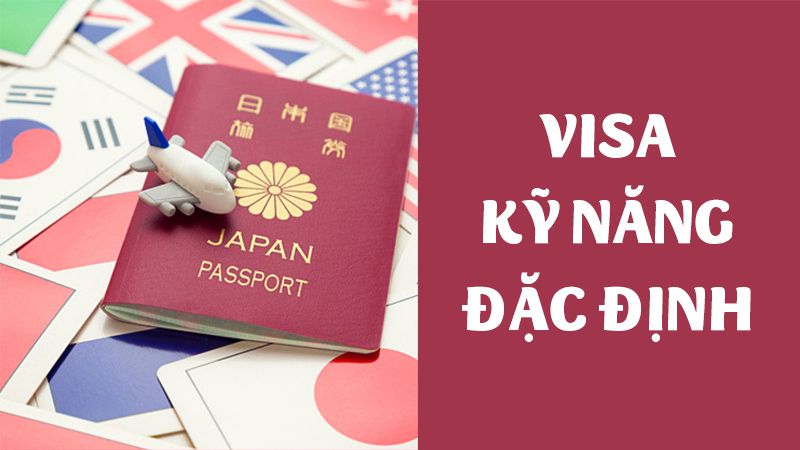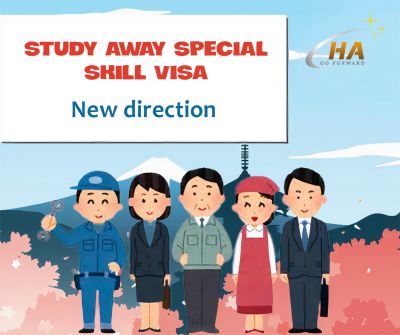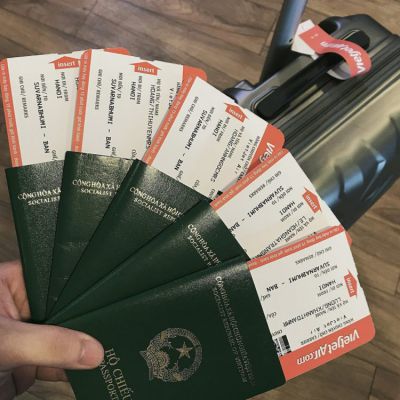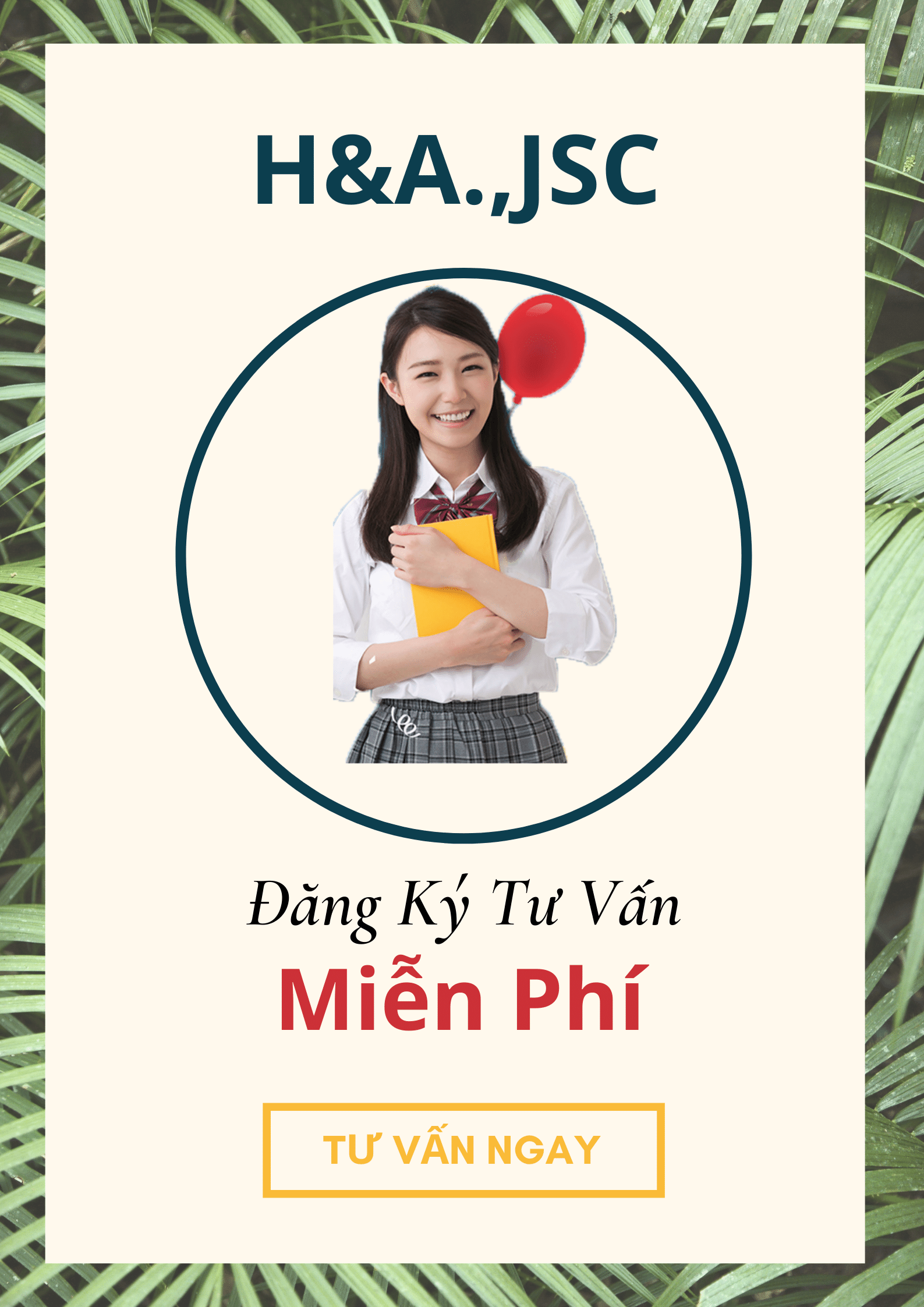SPECIAL SKILL VISA
1. What is a Special Skills Visa?
The Special Skilled Visa, or Tokutei Ginou, is a new type of visa for foreign workers working in Japan. When being granted this visa, employees have the opportunity to work long-term in Japan with an attractive income and many good benefits. However, the requirements for professional qualifications when applying for the Tokutei Ginou Visa type are also higher.
2. Subjects participating in the specific skills program
According to the provisions of the Memorandum of Understanding (MOC), the Japanese side will only accept Vietnamese "specific skills" workers after the workers have completed all necessary procedures in accordance with Vietnamese law. Male. Also included in the "Certification List" issued by the Ministry of Labour, Invalids and Social Affairs of Vietnam, including:
✔ The laborers are dispatched by organizations and enterprises that are allowed by the Ministry of Labour, Invalids and Social Affairs of Vietnam to send workers with special skills to work in Japan.
✔ Vietnamese citizens residing in Japan who have been directly recruited by the labor-receiving agency, include the following subjects:
- Those who are exempt from exams and exams include Technical Trainees who have completed the No. 2 or No. 3 Japanese Technical Intern Trainee Program.
- International students who have graduated from at least two-year courses of schools in Japan and passed the Japanese language and vocational skills tests.
3. Classification of Japan Special Skilled Visa
3.1. Special Skills Visa Category 1 (特定技能1号)
a. Occupations that are accepted under the Special Skilled Visa Category 1
Currently, only 14 occupations are allowed to return to Japan and are considered the No. 1 Special Skilled Residence. These include the following occupations:
✔ Build (建設業)
✔ Electricity - electronics (電気電子情報関連産業)
✔ Shipbuilding, maritime industry (造船・舶用工業)
✔ Agriculture (農業)
✔ Aviation (航空業)
✔ Materials industry (素形材産業)
✔ Fishery (漁業)
✔ Food service industry (外食業)
✔ Cleaning buildings (ビルクリーニング)
✔ Engineering industry (産業機械製造業)
✔ Hotel industry (宿泊業)
✔ Automotive repair and maintenance industry (自動車整備業 )
✔ Food and beverage manufacturing industry (飲食料品製造業)
✔ Nursing industry (介護)
The occupations that are accepted under the type 1 Special Skilled Visa are specified in the Ordinance of the Ministry of Justice. Therefore, when expanding or adding more professions, it is only necessary to supplement through the Ordinance without having to amend the Law.
b. Conditions for applying for Japan Special Skilled Visa Type 1
Depending on the type of worker, there will be different requirements for the status of special-skill residence type 1:
♻ Technical interns who have completed the Japanese technical intern trainee program No. 2
✔ At least one of the following two criteria must be met: Certificate of passing the stage 3 transfer exam or Certificate of completion of the internship issued by the receiving company.
✔ Japanese language test requirements: waived
✔ Skill test requirements:
- For interns who return to the specified skill status in the right industry, they will be exempted from having to take the skills test.
- For interns who return to another profession, they will have to take a skills test.
- For example, mechanical engineering trainees who want to return to the mechanical engineering specialty will be exempted from the skills test. But if TTS mechanical engineering wants to return to the food processing industry, they must take the food processing skills exam.
✔ Not being banned from entering Japan due to violation of Japanese law while living and working in Japan.
Note: For interns who have not yet participated in the transitional exam, they must have an assessment and comment sheet stamped and certified by the enterprise or union.
♻ Trainees who have completed the Japanese Technical Internship Program No. 3
✔ Japanese language test requirements: waived
✔ Skill test requirements:
· For interns who return under the specified skill status in the right industry, they will be exempted from having to take the skills test.
· For interns who return to another profession, they will have to take a skills test.
✔ Not being banned from entering Japan due to violating Japanese law while living and working in Japan
c. Benefits of employees when being granted the No. 1 Tokutei Ginou Visa
♻ When being granted a Category 1 Special Skilled Visa, employees will enjoy the following benefits:
✔ Earn a salary higher than the Japanese minimum wage
✔ The maximum duration of a visa to stay in Japan is 5 years
✔ And other benefits as prescribed by Japanese law
3.2. Special Skills Visa Category 2 (特定技能2号)
a. Occupations that are accepted under the Type 2 Special Skills Visa
♻
✔ Construction industry
✔ Shipbuilding, maritime industry
b. Conditions for issuance of Japan Special Skilled Visa No. 2
✔ Have a high level of skill
✔ Pass the exam prescribed by the Ministry of Justice
c. Benefits of employees when being granted a Type 2 Special Skilled Visa
♻ Workers who are granted Japan Special Skilled Visa Type II will enjoy the following benefits:
✔ Earn a salary higher than the Japanese minimum wage
✔ Visa duration in Japan is 5 years and unlimited number of renewals
✔ Have the opportunity to apply for a permanent residence visa in Japan
✔ To sponsor relatives to come to Japan to live and work
Note: For workers who are granted the No. 1 Special Skilled Visa in Japan, after the contract expires, they do not belong to the industry or are not eligible for the No. 2 Special Skill Visa, they will be forced to return to their home country.
4. Compare the differences between Category 1 and Type 2 Specified Skilled Visas
♻ The differences between Visa Tokutei Ginou Type 1 and Type 2 include:
✔ Type 1 Special Skilled Visa: Maximum stay in Japan is 5 years. Not allowed to sponsor relatives to Japan.
✔ Type 2 Special Skilled Visa: The duration of stay in Japan is 5 years and there is a chance to grant a permanent residence visa in Japan. Allowed to sponsor relatives to Japan. The subject of the guarantee is the spouse and children.
|
|
No 1 Special Skill Visa |
No 2 Special Skill Visa |
|
|
Visa duration |
Limited (5 years total) |
unlimited |
|
|
Bring your loved ones to stay with you |
Cannot |
can |
|
|
Profession |
Construction |
⇨Conversion |
Build |
|
Shipbuilding and shipbuilding |
⇨Conversion |
Shipbuilding – maritime industry |
|
|
Car maintenance |
x |
|
|
|
Air |
x |
|
|
|
Lodging |
x |
|
|
|
Nursing |
x |
|
|
|
Building cleaning |
x |
|
|
|
Agriculture |
x |
|
|
|
Fishery |
x |
|
|
|
Food and beverage manufacturing |
x |
|
|
|
Food Service |
x |
|
|
|
Crafting materials |
x |
|
|
|
Manufacturing production machines |
x |
|
|
|
Electricity - electronics - information |
x |
|
|
5. What is the difference between a Special Skilled Trainee Visa and a Technical Trainee Visa?
|
|
Special Skills Visa |
Technical Trainee Visa |
|
Default |
Addressing labor shortage needs |
Contribution to international |
|
Nationality of labor |
In principle is to receive freedom |
Limited (15 countries) |
|
Except for a few countries like Iran |
Vietnam, China, Philippines, Indonesia, Thailand account for 91% of total Trainees |
|
|
Related parties |
Simple (2 sides) |
Complex (5 sides) |
|
|
Only foreign workers and receiving companies are included. It is possible through a support agency |
In addition to the employees and the receiving company, there are also labor export brokers, trade unions, and agencies that support technical interns. |
|
Number of receptions |
260,000-340,000 employees (Expected in 5 years from 2019) |
270,000 employees (As of the end of 2017) |
The main purpose of the technical intern visa is that the TTS will come to Japan to work with the purpose of learning advanced Japanese techniques. Then bring it back to Vietnam to apply to help develop the economy.
★ Purpose
However, in reality, if you look at JITCO's statistics, nearly 66% of enterprises that accept foreign interns are small-scale companies, so in fact, the Japanese trainee regime is not used to address labor shortage needs more than they originally meant.
In contrast, the specific skill intern visa has a very clear original purpose, which is to solve the need for labor shortages in Japan.
★ Nationality of labor
Currently, the Japanese government has only received skilled TTS from 15 countries that have signed agreements with Japan. Including countries: India, Indonesia, Uzebekistan, Cambodia, Srilanka, Thailand, China, Nepal, Bangladesh, Philippines, Peru, Myanmar, Mongolia, Laos, Vietnam.
In particular, with a special skill intern visa, companies can accept workers from any country. However, in order to be granted a special skill visa type 1, workers need to pass the basic Japanese language and skills test prescribed by a Japanese government agency. And now, this exam is just scheduled to be held in 8 countries: Vietnam, China, Indonesia, Thailand, Myanmar, Cambodia and 2 more countries. Therefore, in the beginning, most of the workers who come to Japan on a special-skill visa will come from the eight countries mentioned above.
★ Related parties
Because the specific skills visa is a work visa, the parties involved include only two parties, the employee and the receiving company, who have signed each other through a labor contract.
Meanwhile, the trainee visa is quite complicated with the number of participants including 5 parties. Including: trade unions in Japan, enterprises receiving interns in Japan, labor export brokers in Vietnam, workers, technical intern support agencies.
6. Answer all questions related to Visa Tokutei Ginou (specific skills)
6.1. Are interns returning home early enough to apply for a Special Skills Visa?
♻
✔ Completion of 80% of the 3-year Japanese technical internship program
✔ Not being banned from entering Japan due to violation of Japanese law while living and working in Japan.
6.2. Can Vietnamese international students in Japan participate in the special skilled labor program?
✔ If international students in Japan complete their study program at a Japanese language school and pass the vocational skills exam, they can convert their student visa to a specific skill visa. However, the Japanese side will closely inspect the training facility to prevent the abuse of the study abroad program to come to Japan to work.
✔ For international students who drop out or are expelled from school, they will not be eligible to apply for a conversion to a Special Skills Visa.
6.3. Is it possible to convert a trainee visa to a Japan specific skill visa?
Type 1 Special Skilled Visa, which is not related to the technical intern trainee program, so as long as a worker meets the two conditions below, he or she can go to Japan as a trainee or not. Japan under the specific skill visa.
♻ Passing the Japanese language exam
♻ Pass the prescribed exam to test knowledge and experience
Synthetic:
Thus, when the Japanese Government receives special skilled workers, it has opened up opportunities for foreign workers to come to Japan to work. At the same time, creating conditions for interns to continue working in Japan with high salaries and more attractive remuneration.
☞ SUPPORT FROM H&A
H&A understands the difficulties and problems of customers on the way to work and settle in Japan.
H&A is ready to accompany you on your way to a brighter future, please contact us for support and answers to all your questions.
Support services from H&A include:
✔Advice on choosing the right career with high salary
✔Complete documents and procedures according to legal regulations
✔Advice on accommodation, support to book flight tickets, equip skills before leaving













